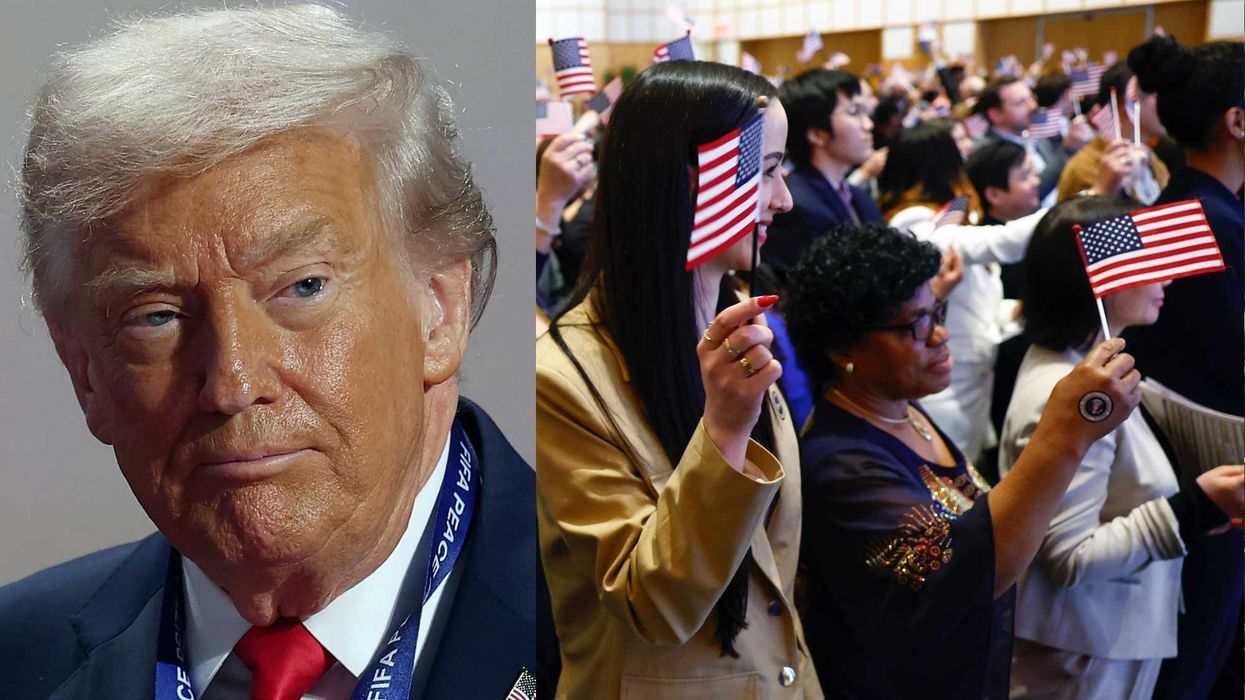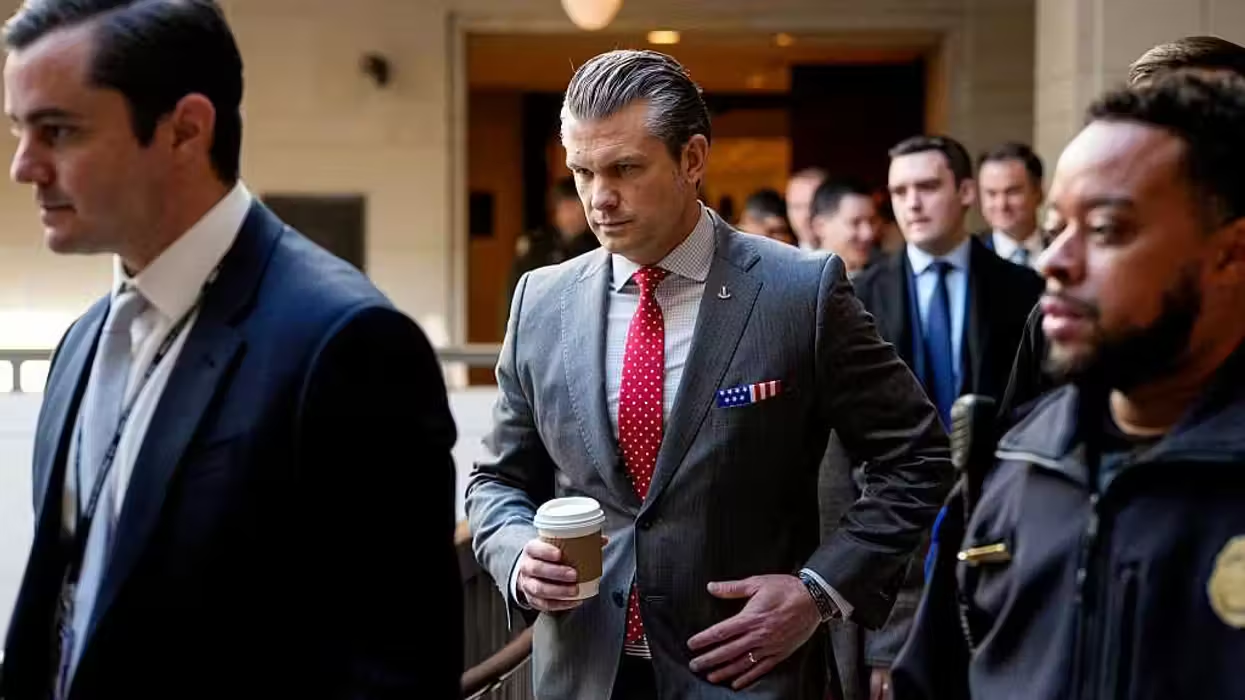
© 2025 Blaze Media LLC. All rights reserved.
Senate Judiciary Committee Begins Hearings on Gun Control, Universal Background Checks Considered
January 30, 2013
Wednesday's Senate Judiciary Committee on the issue of “preventing gun violence” featured fireworks and sentimental moments, with testimony from former Congresswoman and now gun control advocate Gabriel Giffords, as well as remarks from those opposed to increases on gun control, such as Wayne LaPierre of the National Rifle Association and Gayle Trotter of the Independent Women's forum. The hearing was the first time the committee came together with witnesses to discuss the shooting tragedy in Newtown, Conn., and subsequent legislation for increased gun control introduced by California Democrat Sen. Dianne Feinstein and called for by President Obama.
Giffords, who survived a gunshot wound to the head after being attacked at a constituent event in 2011, told lawmakers during her surprise appearance at the hearing that Republicans and Democrats must come together for the serious discussion on violence.
"Speaking is difficult but I need to say something important," said Giffords, who had suffered from aphasia--the inability to speak because of damage to the language pathways in the brain's left hemisphere--after being shot in the head at close range.
"Violence is a big problem. Too many children are dying - too many children. We must do something. It will be hard, but the time is now. You must act. Be bold, be Courageous. Americans are counting on you."
After Giffords's brief remarks she was escorted out of the committee room and her husband, former Astronaut Mark Kelly, testified before the committee. Kelly called for action to increase background checks on gun purchasers, increase penalties on illegal gun purchases, and to remove limitations on public health organizations' ability to collect data on gun violence.
Conversely, LaPierre argued before the committee that new proposed gun regulations and universal background checks will not solve the problem, and "law-abiding gun owners" won't take the blame for "violent or deranged criminals." In his opening statement the NRA executive vice president called on lawmakers to enforce “the thousands of gun laws already on the books,” rather than create new ones.
Trotter of the Independent Women's Forum argued that increased gun control hurts women's safety, and clashed with Rhode Island Democrat Sen. Sheldon Whitehouse specifically over bans on semi-automatic rifles and his understanding--or in her opinion lack there of--on the Second Amendment.
“I understand your also a graduate from the University of Virginia School of Law and you were close to Monticello where Thomas Jefferson penned our Declaration of Independence and close to Montpelier where James Madison was instrumental in drafting the Bill of Rights," Trotter said after disagreeing with the senator's argument that Americans are still capable of defending themselves without the weapons banned under the Feinsein bill.
"I think you can understand that, as a woman, it is very important not to place undue burdens on our Second Amendment right to choose to defend ourself.”
In her New York Daily News column Wednesday S.E. Cupp argues that universal background checks, which were discussed at the hearing and have been gaining traction nationally after the Newtown tragedy, may be an acceptable price to pay for the right to own a gun but are unlikely to curb gun violence and put gun owners through undue harassment.
But inefficacy is only half of it. Next to “Will this actually solve the problem?” the question least often asked when issues of gun control are bandied about is, “Whom will this punish?” And when it comes to law-abiding gun owners, there is often little consideration or sympathy.But even though we accept background checks as a necessary preemptive measure, there is a real psychological and cultural impact when law-abiding gun owners are routinely treated en masse like suspects.
Unlike gun safety courses, which rightly ask that gun owners prove they are responsible, background checks ask that they prove they are not criminals, effectively putting the burden of proof on law-abiding citizens.
This means providing personal information, including race and ethnicity, and answering questions about your criminal record, drug use, history of abuse and immigration status on a federal affidavit. Then, at point of purchase, you’re run through the system and told one of three things: You’re cleared and can legally purchase the firearm; you’re yellow-lighted, and they need more time to investigate your record; or you are prohibited from buying the gun and sent on your way.
On 'Real News' Wednesday, S.E. Cupp and the panel discussed Wednesday's hearings and why universal background checks could do more harm than good.
Want to leave a tip?
We answer to you. Help keep our content free of advertisers and big tech censorship by leaving a tip today.
Want to join the conversation?
Already a subscriber?
more stories
Sign up for the Blaze newsletter
By signing up, you agree to our Privacy Policy and Terms of Use, and agree to receive content that may sometimes include advertisements. You may opt out at any time.
Related Content
© 2025 Blaze Media LLC. All rights reserved.
Get the stories that matter most delivered directly to your inbox.
By signing up, you agree to our Privacy Policy and Terms of Use, and agree to receive content that may sometimes include advertisements. You may opt out at any time.






